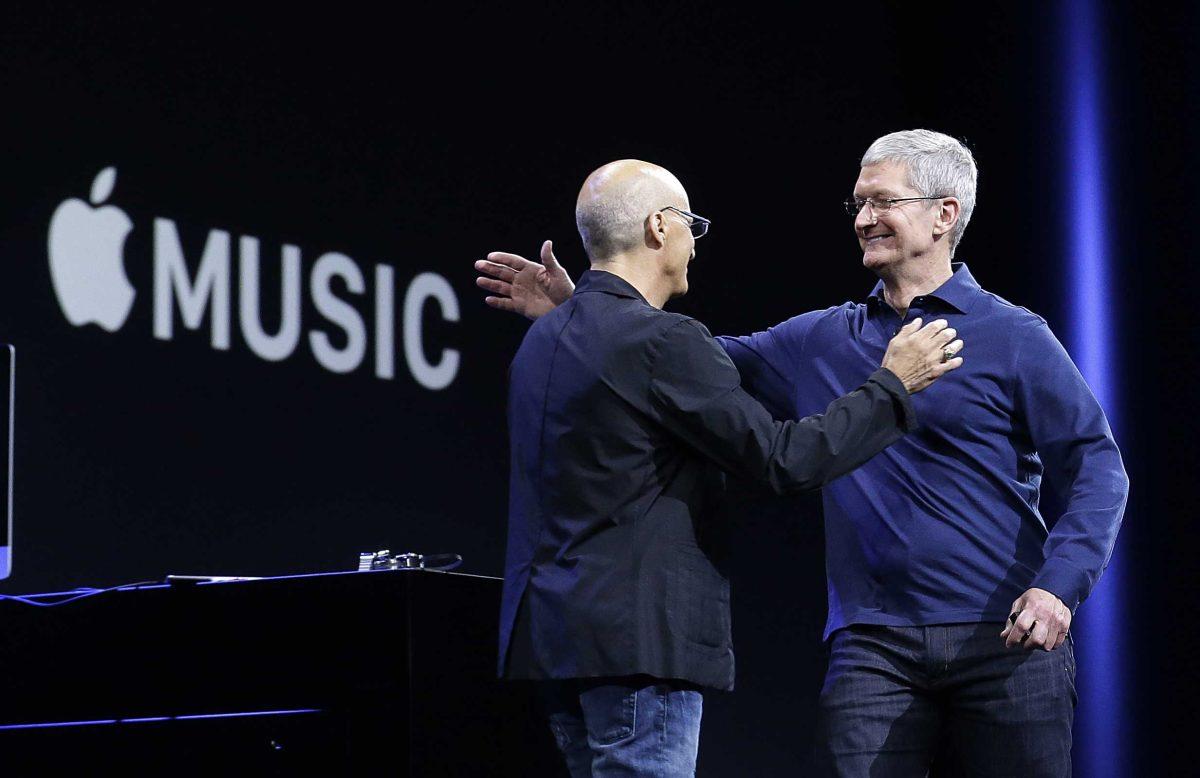The date is October 23, 2001. Piracy is ravaging a music industry failing to change with the rise of the Internet. Steve Jobs takes the stage to talk business numbers, per usual for any sort of Apple event at the time. At the end of the keynote, though, Jobs unveiled something that would change the landscape of music consumption forever — the very first iPod. While MP3 players existed before the iPod’s announcement, the majority of consumers were still listening to CDs on portable players. Paired with the previously existing iTunes, the two were a match destined to succeed. The rest is history.
Now the date is June 8, 2015, nearly 14 years after the original iPod announcement. Steve Jobs has since passed away. The “i” brand is booming and has spawned dozens of devices such as the iPhone and iPad and the multiple iterations of the iPod itself. It’s on this day that Apple wants to make an impact of the same magnitude that the iPod had on music over a decade prior. What they did, however, was less than revolutionary.
The iPod’s announcement was a beacon of hope for the industry as it gave consumers a way to purchase music legally in the form of individual songs instead of entire albums. It did something different than MP3 players in the past, and that unique package made the device succeed and shoot Apple into stardom. Apple Music attempted to recapture the magic that the iPod once created for the company, but the outcome could not be more hazy.
In stark contrast to the iPod, Apple Music is entering the music streaming market that already is heavily saturated by Spotify and the lesser known Tidal. Since arriving in the United States in 2011, Spotify has gained a passionate following and consumer base of around 20 million users, both free and premium subscribers. That number also marks 20 million people that Apple now needs to convince to switch over to its new service, a difficult task as Spotify users generally are happy with the service.
In an attempt to bring new users to the platform, Apple is letting users try a limited, three-month free trial of the service that gives users access to most of the features Apple revealed on stage, but music streaming is limited to Apple Radio stations similar to Pandora. One of the bigger features subscribers can try out is Beats 1 radio, a 24/7 radio station based out of Los Angeles, London and New York City.
Another feature tied into the service is the music social network titled “Connect.” If that sounds familiar, it should. The network is very similar to the failed music social network Ping that Apple pulled the plug on after only two years of operation. Ping was originally free to use for everyone, and even that was not enough to get users to keep the network alive. This gives me little faith that consumers will subscribe solely for the purpose of following artists they like, especially given the amount of social networks that musicians already post to being stronger than ever.
The main issue with the free subscription is that it gives the majority of the unique features away for no money. Now the deciding factor of switching services comes down to the music library offered by each company. Spotify offers a wide range of music that seems to grow every week as new albums are released and artists are being added.
Even with the wide array of artists that Spotify offers, there are a few major gaps in its library.
Apple has exclusive digital rights to the entire Beatles discography, so Spotify users cannot listen to the classics unless they import them to Spotify from their personal library first. Last year, Taylor Swift pulled her entire catalogue from Spotify because she claimed she was not getting paid enough. Apple Music will be the sole service that allows users to stream her catalogue instead of buying it. In addition, Beyoncé released her latest album in the middle of the night exclusively on iTunes. While Spotify added the album much later on, that kind of exclusive content is something users will only see on iTunes for the foreseeable future. Spotify simply does not have the money to score these exclusives. When choosing between the services, new users will choose the option with more content they like.
What Apple Music boils down to is an attempt to jump on the music streaming bandwagon now that Apple sees the potential money. While Apple attempts to change the game with a 24/7 radio station and a revamp of their music social network, the novelty is lost on giving them away for free. Apple is late to the game with its take on streaming.
Apple Music is not the new iPod — Spotify was when it launched. Like the iPod, Spotify changed the way people accessed and listened to music. Apple is attempting to do what Spotify already excels at instead of doing something new. Apple Music is just another service, plain and simple. Instead of being the wind of change, Apple is jumping on a trend. While most of these thoughts are strictly speculation leading up to the June 30 release, Apple lacks a killer feature that will make users migrate to the service. Because of that, Spotify can rest easy for now.
Riley Katz is a 20-year-old mass communication junior from New Orleans. You can reach him on Twitter @rkatz94.
Apple’s arrival to streaming is too late
By Riley Katz
June 17, 2015
Apple CEO Tim Cook, right, hugs Beats by Dre co-founder and Apple employee Jimmy Iovine at the Apple Worldwide Developers Conference in San Francisco, Monday, June 8, 2015. The maker of iPods and iPhones announced Apple Music, its new, paid streaming-music service to launch this summer. (AP Photo/Jeff Chiu)





